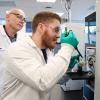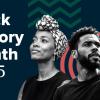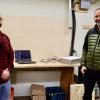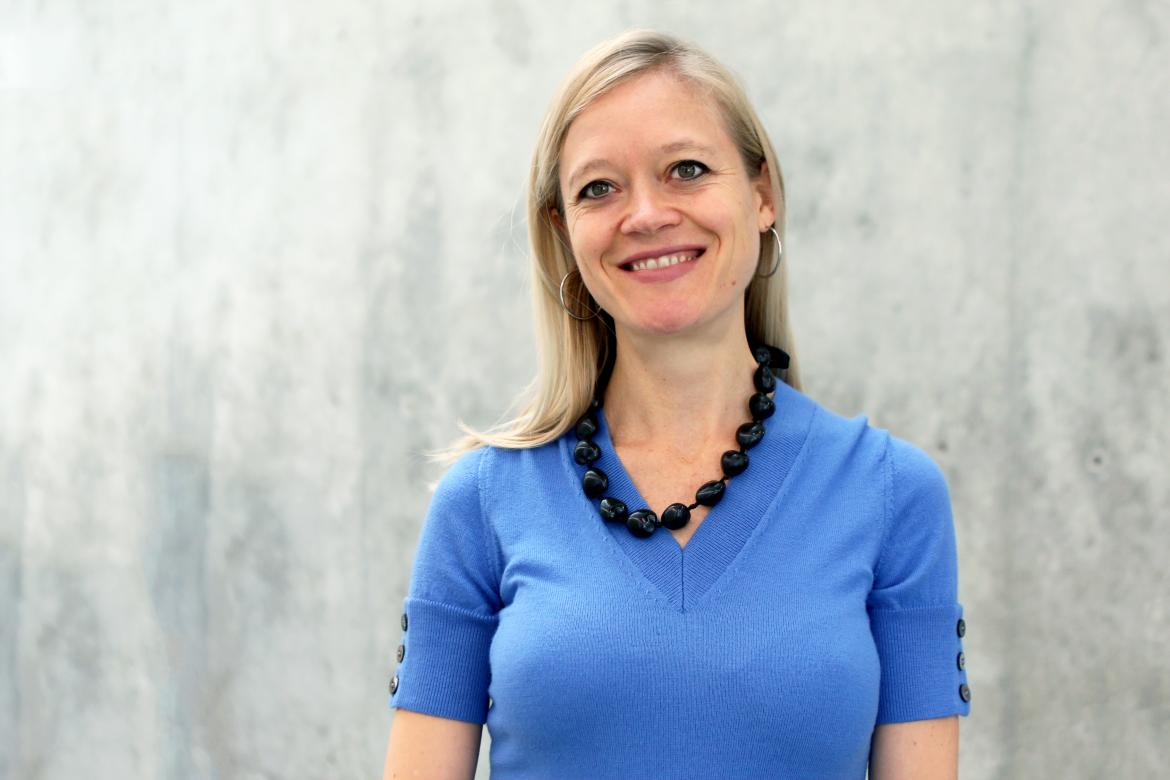
VIU Nursing Professor Shannon Dames received a Reach award to investigate boosting resilience in healthcare workers.
September 10, 2018 - 9:30am
Dr. Shannon Dames is investigating how self-compassion development can boost resilience in healthcare workers and address toxic work environments
Vancouver Island University (VIU) Nursing Professor Dr. Shannon Dames and a multidisciplinary team from Island Health are collaborating to develop curriculum that will emphasize the importance of promoting self-compassion among healthcare providers.
Dames and team were awarded a $10,000 Reach award from the Michael Smith Foundation for Health Research (MSFHR) for their research into improving the healthcare worker experience and developing an evidence-based strategy to address the commonly reported issue of hostile work environments.
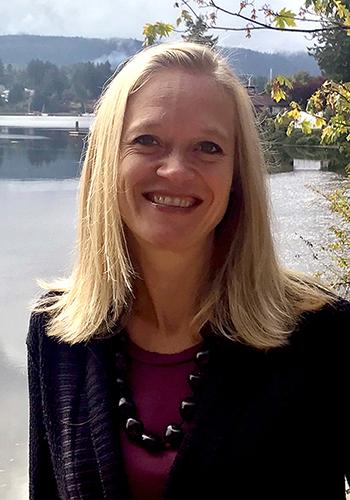 Inspired by the memory and passion of Nobel Laureate Dr. Michael Smith, the Foundation is BC’s health research funding agency. The Foundation developed the Reach Program to provide funding for teams of researchers and research users to support the dissemination and uptake of evidence to inform and improve further studies, practice and policy-making.
Inspired by the memory and passion of Nobel Laureate Dr. Michael Smith, the Foundation is BC’s health research funding agency. The Foundation developed the Reach Program to provide funding for teams of researchers and research users to support the dissemination and uptake of evidence to inform and improve further studies, practice and policy-making.
“This funding announcement marks a milestone for VIU as it is our first Michael Smith Foundation for Health Research grant,” says Dr. Nicole Vaugeois, Associate Vice-President of VIU’s Scholarship, Research and Creative Activity office. “We have been working over the past year to engage in more collaborative research with Island Health and this fund will enable us to formalize this partnership and, together, mobilize critically important research for the benefit of our region.”
The research Dames and team are conducting aims to improve the environment for both healthcare providers and their patients.
“There is a long-established local and national reputation among healthcare environments related to a multitude of stressors, including co-worker hostility,” says Dames. “The impact on attrition rates and employee mental and physical health is immense.”
In her research into healthcare workers’ resilience, Dames notes that while some healthcare workers opt to leave the workplace due to burnout, others stay, which compounds the issue and contributes not only to low morale but can also negatively impact patients’ health and well-being.
“New research shows that self-compassion or unconditional, positive regard turned inward, promotes the ability to manage workplace stressors. When developed as an organizational priority, it prevents social dominance issues and celebrates authentic and diverse ways of being. Conversely, work environments that are low in self and other compassion, tend to be highly perfectionistic, littered with social dominance issues, and are easily threatened by diversity,” says Dames.
“The development of a self-compassion curriculum is timely for Island Health given one of our organizational priorities is to increase the focus on enhancing the well-being of health and care providers,” says Dawn Nedzelski, Island Health’s Chief Nursing Officer and Chief of Professional Practice. “Previous research has documented the connection between self-compassion and resiliency.”
Dr. Wendy Young, Research Facilitator and Knowledge Translation Coordinator at Island Health, will work in partnership with Dames and VIU Nursing student Alexa Garrey to develop the curriculum.
Young has a strong background in moving research into practice. She brings significant expertise to this work, having conducted collaborative health services research and evaluations for the past two decades. Young is committed to supporting collaborative interdisciplinary teams to improve practice.
“I am thrilled to be a part of this important work,” says Young. “We can anticipate that increasing self-compassion in healthcare providers will lead to increased patient satisfaction and improved experience and outcomes for patients, providers and the health system.”
In her fourth year of a Bachelor of Science in Nursing, Garrey has immersed herself in this study, learning as much about herself as she has about the research process.
“I have found great value in exploring the notion of self-compassion,” says Garrey. “It seems as though in a world that is ego-driven, it has become uncouth to work on yourself yet just the process of learning about self-compassion has enabled me to incorporate this practice in my own life.”
The Reach award application process was also supported by VIU’s Office of Scholarship, Research and Creative Activity (SRCA) and Island Health.
With the help of the Reach award, the research team will complete a literature review, develop an evidence-based curriculum, and submit a grant application to fund a pilot study on Vancouver Island.
“The ultimate aim of the self-compassion curriculum is to enhance the mental health and well-being of healthcare workers,” says Dames. “Those who direct compassion inwardly, naturally extend compassion to others.”
The curriculum is expected to improve stress resilience among healthcare workers, decrease the use of substances to cope with stress or distress, reduce attrition rates due to burnout and promote healthy communities of practice.
For more information, visit VIU Nursing. To view this press release online, visit VIU News.
-30-
MEDIA CONTACT:
Jenn McGarrigle, Communications Officer, Vancouver Island University
P: 250.619.6860 | E: Jenn.McGarrigle@viu.ca | T: @VIUNews
ABOUT THE PARTNERS
With funding from the Michael Smith Foundation for Health Research, Vancouver Island University and Island Health have teamed up to develop a curriculum that will promote self-compassion among healthcare providers.
Michael Smith Foundation for Health Research
The Michael Smith Foundation for Health Research (MSFHR), funded by the province of British Columbia, is BC's health research funding agency. MSFHR helps develop, retain and recruit the talented people whose research improves the health of British Columbians, addresses health system priorities, creates jobs and adds to the knowledge economy.
Since its inception in 2001, MSFHR has been a key participant in BC's health research and life sciences ecosystem. The Foundation works as a trusted partner with government, the health research community and the health system to support better health outcomes through research and its translation into new treatments, cures, practices and solutions. Learn more at www.msfhr.org
Vancouver Island University
Known as a centre of excellence for teaching, applied research and learning, Vancouver Island University (VIU) offers programs that include graduate and undergraduate degrees, vocational programs and trades, as well as access programs. With roots that date back to 1936, VIU is today a dynamic, internationally known university supporting a student population of 16,000 learners, including 1,900 international students and 2,000 Indigenous students. VIU is deeply connected to coastal and First Nations communities and works closely with communities to create a supportive, culturally relevant learning environment for Indigenous learners – this is one of the University’s core values. As well, VIU is focused on providing access to quality post-secondary education for non-traditional learners who face a variety of barriers. For example, in 2013, VIU became the first BC post-secondary institution to offer a tuition waiver program for students who were former youth in care. Learn how you can matter here: www.viu.ca
Island Health
Island Health provides health care and support services to more than 767,000 people on Vancouver Island, the islands in the Salish Sea and the Johnstone Strait, and the mainland communities north of Powell River. In collaboration with their many valued partners and in alignment with government’s strategic direction, Island Health is transforming the health system to better meet the needs of the people they serve and support their vision of “Excellent health and care for everyone, everywhere, every time.”



